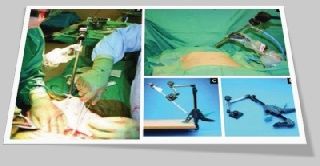In recent years, the use of videotapes in medical malpractice cases has become increasingly common. Videotapes can be used as evidence against surgeons or gynecologists in malpractice trials, and can have a significant impact on the outcome of the trial. This essay will discuss the use of videotapes as evidence in malpractice cases, the benefits and drawbacks of using videotapes, and the implications of this practice for the healthcare industry.
Use of Videotapes as Evidence:
Videotapes can be used as evidence in medical malpractice cases to demonstrate a surgeon or gynecologist's actions during a procedure. In many cases, the videotapes are recorded by the healthcare facility or by the surgeon or gynecologist themselves. The videotapes can be used to show the actions of the surgeon or gynecologist during the procedure, including any errors or omissions that may have occurred.
The use of videotapes as evidence in malpractice cases has become increasingly common in recent years. Advances in technology have made it easier for healthcare facilities to record procedures and for attorneys to use the recordings as evidence in court. The use of videotapes as evidence has had a significant impact on the outcome of malpractice cases, with many cases being settled out of court or resulting in large awards for the plaintiff.
Benefits of Using Videotapes:
There are several benefits to using videotapes as evidence in malpractice cases. Firstly, videotapes provide a clear and concise record of the actions taken by the surgeon or gynecologist during the procedure. This record can be used to demonstrate any errors or omissions that may have occurred during the procedure, and can provide evidence to support the plaintiff's case.
Secondly, videotapes can be used to educate healthcare providers about best practices and to improve patient safety. By reviewing videotapes of procedures, healthcare providers can identify areas where improvements can be made and can take steps to prevent future errors or omissions.
Finally, the use of videotapes as evidence can help to hold healthcare providers accountable for their actions. The use of videotapes can demonstrate the severity of any errors or omissions that may have occurred and can lead to changes in policies and procedures to prevent similar errors from occurring in the future.
Drawbacks of Using Videotapes:
While there are several benefits to using videotapes as evidence in malpractice cases, there are also some drawbacks to this practice. Firstly, videotapes can be misinterpreted or taken out of context, which can lead to misunderstandings or misrepresentations of the surgeon or gynecologist's actions.
Secondly, the use of videotapes as evidence can create a negative perception of the healthcare provider. This negative perception can have a significant impact on the provider's reputation and can make it difficult for them to practice medicine in the future.
Finally, the use of videotapes as evidence can have a chilling effect on healthcare providers. Providers may be reluctant to take risks or to try new techniques out of fear that their actions will be recorded and used against them in a malpractice trial.
Implications for the Healthcare Industry:
The use of videotapes as evidence in malpractice cases has significant implications for the healthcare industry. Firstly, the use of videotapes can improve patient safety by identifying areas where improvements can be made and by holding healthcare providers accountable for their actions.
Secondly, the use of videotapes can lead to changes in policies and procedures to prevent similar errors from occurring in the future. This can improve the quality of care provided to patients and can reduce the risk of malpractice claims.
Finally, the use of videotapes can have a negative impact on the reputation of healthcare providers. Providers may be reluctant to take risks or to try new techniques out of fear that their actions will be recorded and used against them in a malpractice trial. This reluctance can lead to alack of innovation in the healthcare industry, which can ultimately impact patient care.
The use of videotapes as evidence in malpractice cases also has implications for healthcare facilities. Facilities may need to invest in new technology and training to ensure that procedures are recorded accurately and that the recordings can be used as evidence in court. Facilities may also need to review their policies and procedures to ensure that they are in compliance with applicable laws and regulations related to the use of videotapes as evidence.
In addition to these implications, the use of videotapes as evidence in malpractice cases raises important ethical and legal questions. Healthcare providers have a duty to provide high-quality care to their patients, but they also have a right to privacy and confidentiality. The use of videotapes as evidence can potentially violate this right to privacy and confidentiality, which raises important legal and ethical questions that must be addressed.
Conclusion:
In conclusion, the use of videotapes as evidence in malpractice cases has become increasingly common in recent years. Videotapes can be used to demonstrate a surgeon or gynecologist's actions during a procedure and can have a significant impact on the outcome of a malpractice trial. While there are several benefits to using videotapes as evidence, there are also some drawbacks to this practice, including the potential for misinterpretation or misrepresentation, the negative impact on the reputation of healthcare providers, and the potential chilling effect on innovation in the healthcare industry.
The use of videotapes as evidence in malpractice cases also has implications for the healthcare industry, including improvements in patient safety, changes in policies and procedures, and potential legal and ethical issues related to privacy and confidentiality. Overall, the use of videotapes as evidence in malpractice cases is a complex issue that requires careful consideration of the benefits and drawbacks of this practice, as well as the legal and ethical implications for healthcare providers and facilities.


